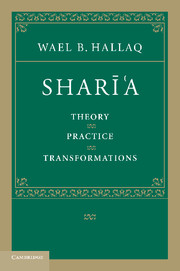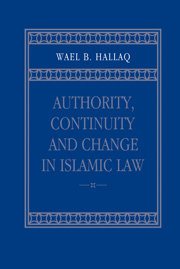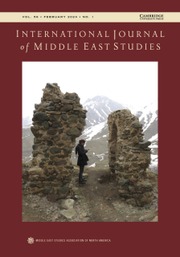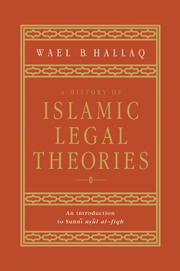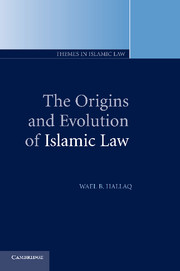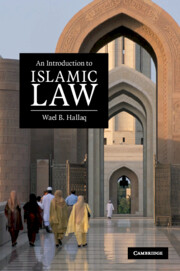Sharī'a
In recent years, Islamic law, or Shari'a, has been appropriated as a tool of modernity in the Muslim world and in the West and has become highly politicised in consequence. Wael Hallaq's magisterial overview of Shari'a sets the record straight by examining the doctrines and practices of Islamic law within the context of its history, and by showing how it functioned within pre-modern Islamic societies as a moral imperative. In so doing, Hallaq takes the reader on an epic journey tracing the history of Islamic law from its beginnings in seventh-century Arabia, through its development and transformation under the Ottomans, and across lands as diverse as India, Africa and South-East Asia, to the present. In a remarkably fluent narrative, the author unravels the complexities of his subject to reveal a love and deep knowledge of the law which will inform, engage and challenge the reader.
- An intelligent, informed and analytic account of the development and transformation of Islamic law and its practices
- Hallaq is the master of his field, a leading scholar of Islamic law and its interpretation
- As the only book on the market to offer this breadth of coverage, it will be required reading for students, researchers and professionals
Reviews & endorsements
“This masterpiece, to which Wael Hallaq brings the full force of his unparalleled knowledge of the Shari`a...supplies a riveting account of the history of Islamic legal institutions and doctrines, as well as the lived experience of the law. His discussions... mark the coming to full fruition of a new and compelling paradigm in Islamic legal studies. This book promises to be the seminal work in the field for many years to come.” - Judith E. Tucker, Professor of History and Director, Academic Programs in Arab Studies, Georgetown University
“A work of deep learning and great theoretical sophistication, yet highly accessible, this book offers an unrivaled introduction to the Islamic legal tradition. The moral underpinnings of the law have never before been highlighted more clearly or in such varied social and political contexts. Hallaq’s portrayal of how the Shari`a has come to be imagined in the modern world and the transformative impact of the nation-state on all facets of Islamic law brings new perspectives to the study of colonial and post-colonial societies, Muslim politics, and modern Islamic thought.” - Muhammad Qasim Zaman, author of The Ulama in Contemporary Islam
"Hallaq has built a new contribution upon [earlier] foundations, however, the most important of which is the charting of a new trajectory for Islamic legal studies that is both deeply engaged with social science theoretical projects and sharply aware of the implications of the academic study of Islamic law for contemporary politics."
Canadian Journal of History, Iza Hussin, University of Massachusetts-Amherst
Product details
April 2009Paperback
9780521678742
626 pages
228 × 152 × 29 mm
0.97kg
Available
Table of Contents
- Part I. The Pre-Modern Tradition:
- 1. The formative period
- 2. Legal theory: epistemology, language, and legal reasoning
- 3. Legal education and the politics of law
- 4. Law and society
- 5. The circle of justice and later dynasties
- Part II. The Law: An Outline:
- 6. Legal pillars of religion
- 7. Contracts and other obligations
- 8. Family law and succession
- 9. Property and ownership
- 10. Offenses
- 11. Jihad
- 12. Courts of justice, suits and evidence
- Part III. The Sweep of Modernity:
- 13. The conceptual framework: an introduction
- 14. The jural colonization of India and South-East Asia
- 15. Hegemonic modernity: the Middle East and North Africa during the nineteenth and early twentieth century
- 16. Modernizing the law in the age of nation-states
- 17. In search of a legal methodology
- 18. Repercussions: concluding notes.

